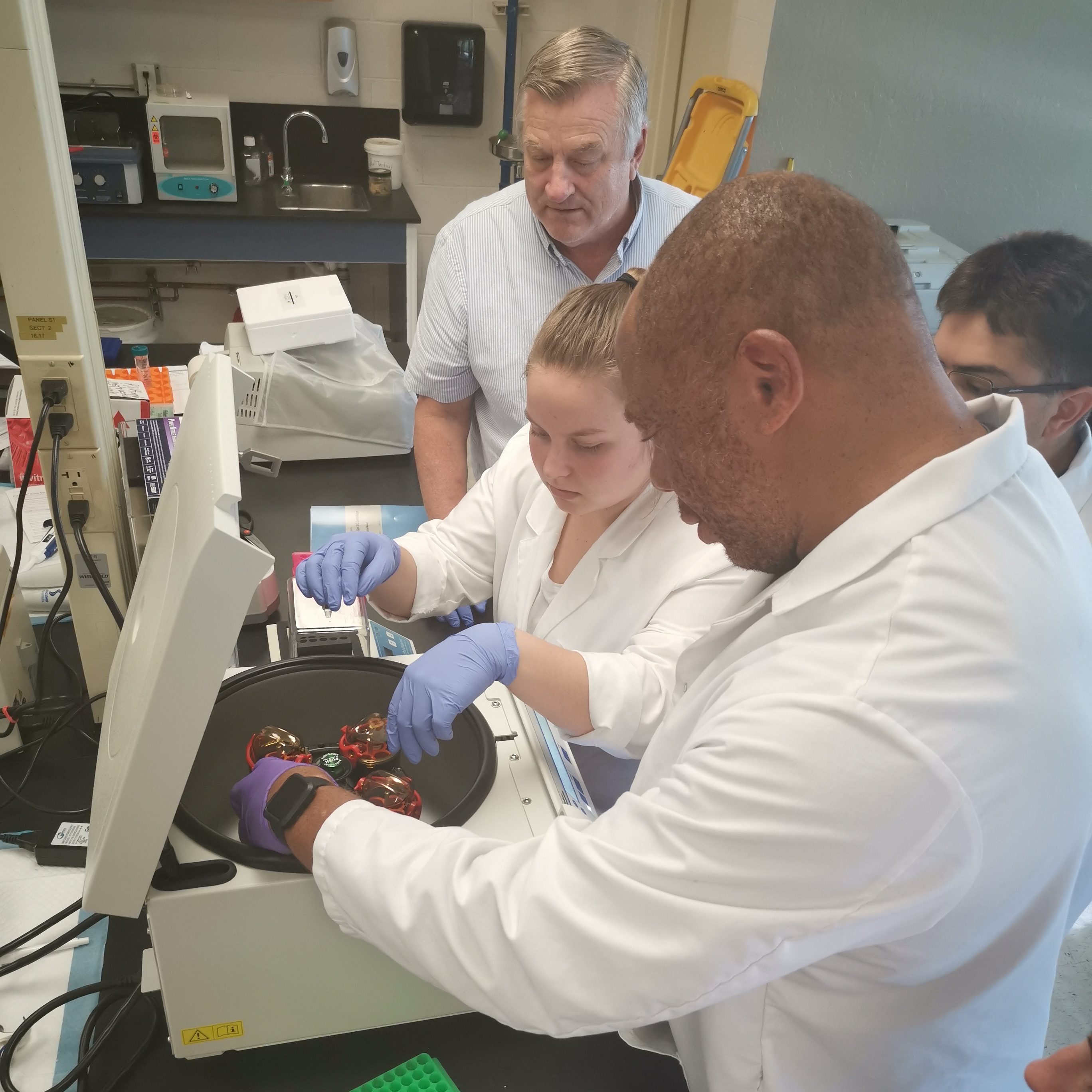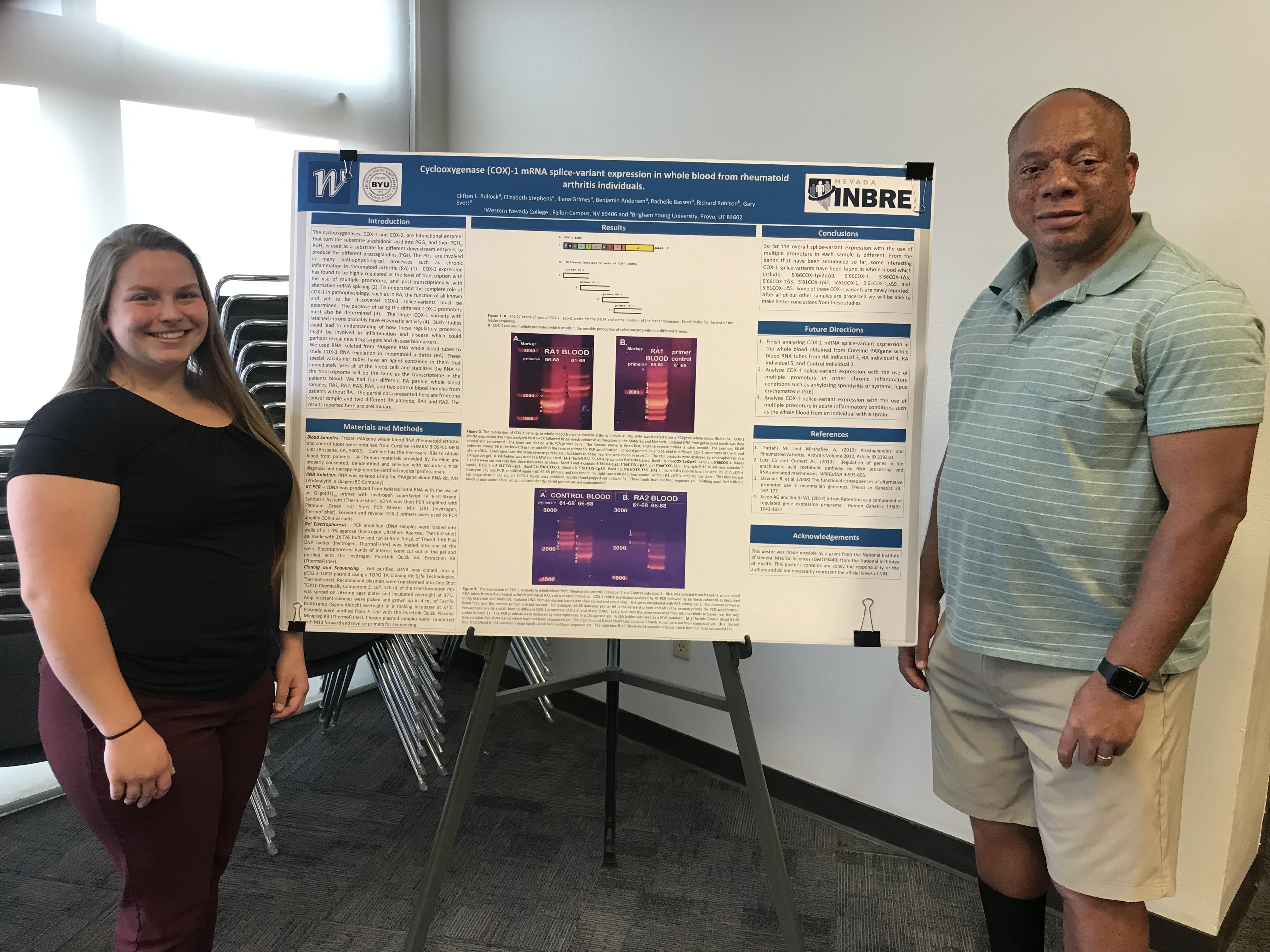Fallon Students Focus on Chronic Inflammation
Fallon Students Focus on Chronic Inflammation
Jul 25, 2019

Fallon Students Focus on Chronic Inflammation

Elizabeth Stephens and Clifton Bullock of Western Nevada College display the INBRE poster from research work conducted by them and other students on the Fallon campus this summer.
This summer, the Western Nevada College campus in Fallon hosted a three-week research opportunity for students.
Funded by Nevada IDeA Network of Biomedical Research Excellence (INBRE), Fallon and Carson campuses just completed their third year of summer workshops to help students gain valuable and competitive skills that are usually only available in universities.
Dr. Gary Evett and Rachelle Bassen, biology professors at WNC, led Fallons summer project that focused on discovering novel genetic variations in the cyclooxygenase (COX-1) gene that might be involved in chronic inflammation in the body (such as rheumatoid arthritis). This type of research is important to help with making new drugs to tackle inflammation.
Students Ben Andersen,Clifton Bullock, IlianaHockenberry-Grimes and Elizabeth Stephens participated in the research work.
The research project was particularly meaningful and personal for Hockenberry-Grimes.
Many of my family members suffer from this (disease), she said. Having seen with my own eyes the damage that chronic inflammation and disease can inflict upon the world, I can say with certainty that these research projects are of paramount importance. Dr. Evett always says that to be a good scientist, one does not have to solve a problem in its entirety, but rather do good science that allows a piece of the puzzle to be solved.
These INBRE research projects are allowing undergraduate students to help solve a piece of the puzzle, which is an invaluable experience.
Andersen said, Helping Dr. Evett and Ms. Bassen with research was a great honor. In our research we either reproduced or discovered new variants that may lead to new medications and a better understanding of our bodies nature. I take pride in the idea that I am part of this deeper curiosity and look forward to exploring it more.
Stephens and Bullock also felt like the teams research work will be beneficial to them and others in the future.
INBRE research has given me the opportunity to gain valuable laboratory skills and experience as well as general scientific knowledge, Stephens said. I will be able to carry this with me through my undergraduate studies as well as my postgraduate education.
Bullock said, Im thankful for being able to be part of something that may be influential in the scientific community in the future.
In addition to volunteering their time to work on this project every day, the students learned valued skills that can be promoted on rsums, and applications for internships, jobs and more.
They presented a poster on their research at the 2019 Undergraduate Research Symposium at Truckee Meadows Community College on June 28 and will do so at the 2019 Statewide Nevada INBRE Conference in Las Vegas in August and the 2019 NIH IDeA Western Regional Conference in Las Vegas in October.